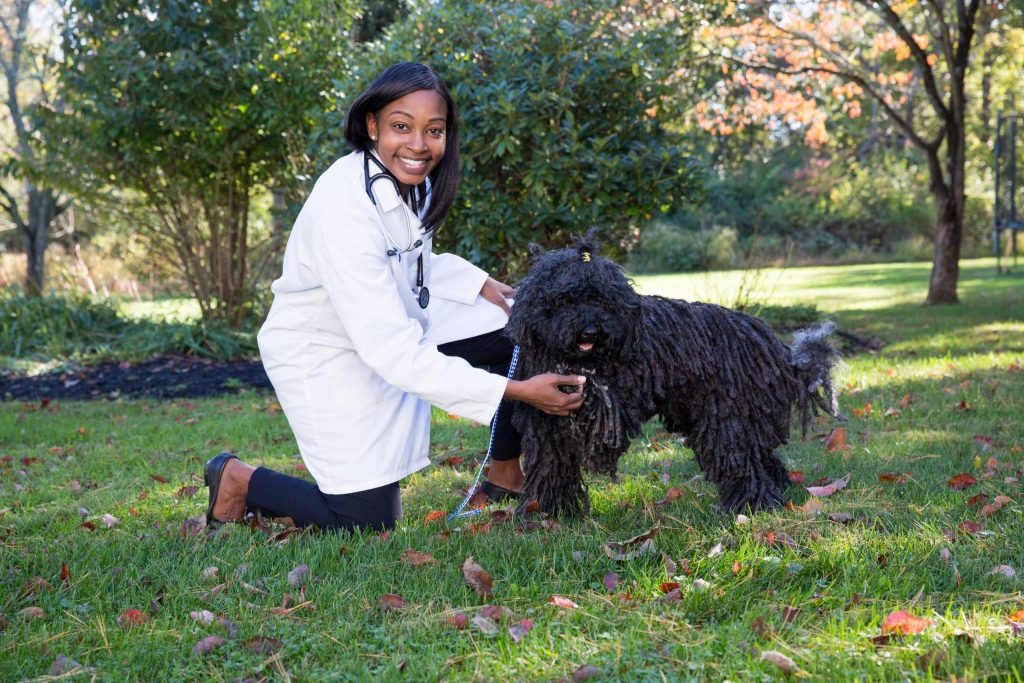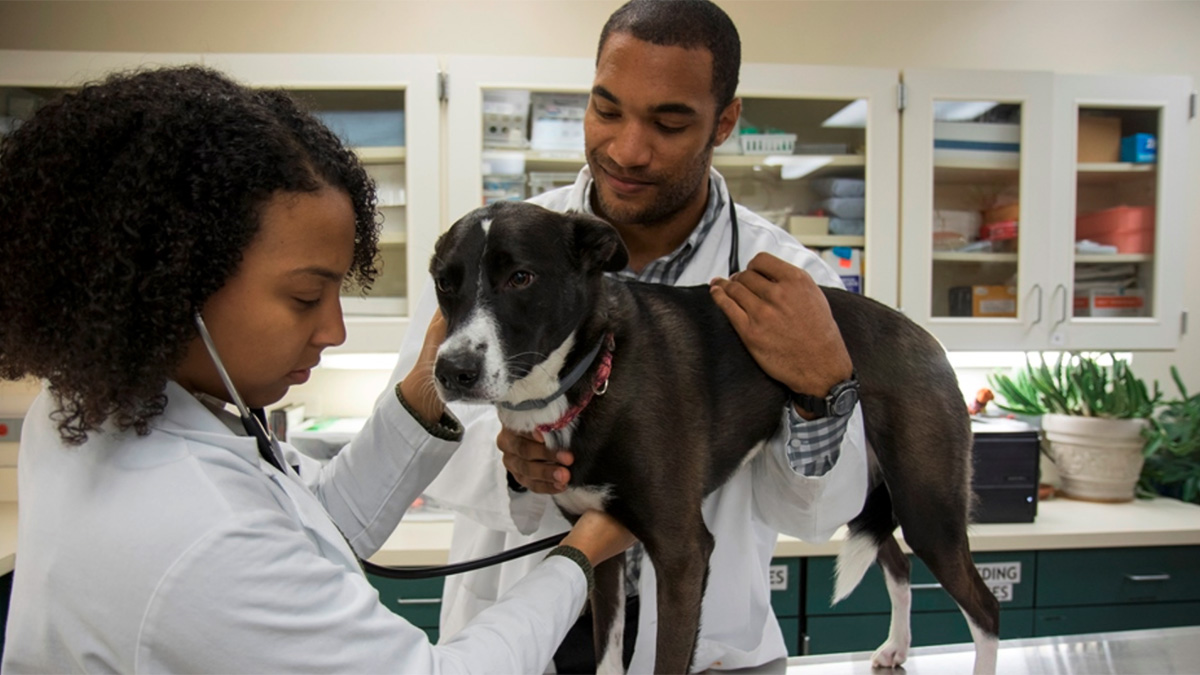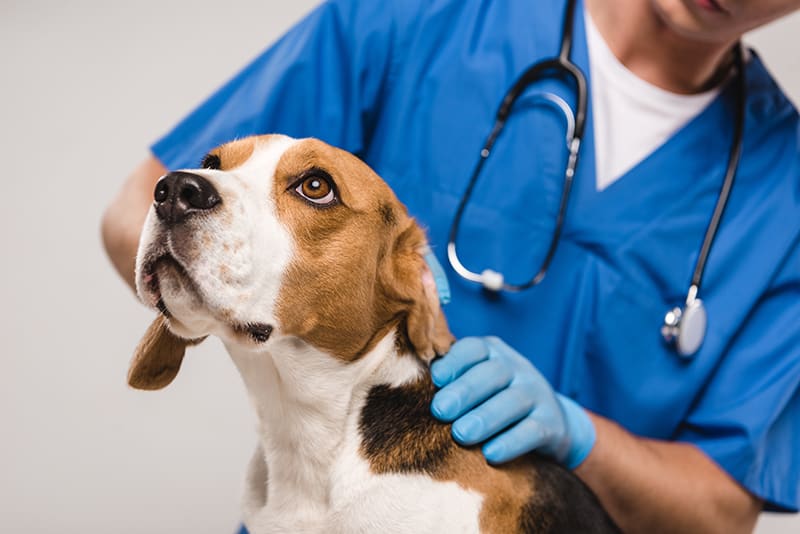How a Veterinary Oncologist helps your pet during their tumor care journey
Understanding the Duty of a Vet Oncologist in Your Pet's Cancer cells Care
A veterinary oncologist focuses on detecting and dealing with cancer cells in animals. Their experience is crucial for creating tailored treatment strategies that address the one-of-a-kind demands of each pet. Early medical diagnosis can substantially affect end results, making their role a lot more crucial. Recognizing the different treatment choices and exactly how these professionals team up with primary vets is essential. What methods do they employ to boost your pet dog's quality of life during this tough time?

What Is a Veterinary Oncologist?
A vet oncologist is a specific vet who focuses on treating and detecting cancer cells in family pets. These specialists possess sophisticated training in both vet medication and oncology, allowing them to recognize the complexities of malignant illness in pets. Their competence permits them to execute a variety of diagnostic procedures, including imaging methods and laboratory tests, to accurately recognize different sorts of cancers cells in pet dogs.
In addition to diagnosis, veterinary oncologists develop tailored treatment strategies, which may consist of surgery, radiation treatment, radiation treatment, or palliative treatment. They function very closely with pet dog proprietors to clarify therapy options and potential end results, ensuring that households make notified decisions about their animals' care. Vet oncologists commonly work together with other veterinary professionals and general specialists, developing a thorough strategy to family pet health and wellness. By concentrating on cancer cells treatment, they play a critical duty in enhancing the lifestyle for animals detected with malignancies.
The Significance of Early Medical Diagnosis and Treatment
Early medical diagnosis and therapy of cancer cells in pets greatly enhance the opportunities of successful outcomes and boosted lifestyle. When cancer cells is identified in its beginning, vet oncologists can implement targeted treatments that may slow condition progression and alleviate signs. This proactive technique permits for better monitoring of the condition, possibly causing longer survival times and enhanced comfort for the family pet.
Furthermore, very early detection usually indicates that therapy alternatives may be much less intrusive and more efficient, lowering the general problem on both the pet dog and its owner. Regular veterinary check-ups and understanding of subtle behavior adjustments are vital, as they can help with prompt medical diagnoses. Owners should remain attentive and consult their veterinarian at the very first indication of problem. Veterinary Oncology Services. Inevitably, a very early medical diagnosis encourages pet proprietors to make informed decisions about their animal's care, significantly affecting the general journey through cancer management
Therapy Alternatives Provided by Vet Oncologists
When encountered with a cancer diagnosis, pet proprietors can discover a range of treatment options offered by vet oncologists that are tailored to the specific demands of their pets. These experts normally use a combination of surgery, radiation treatment, radiation treatment, and immunotherapy. Surgical intervention might intend to get rid of lumps or impacted tissues, while chemotherapy utilizes drugs to target and kill cancer cells, typically provided in cycles.
Radiation therapy concentrates on utilizing high-energy rays to diminish tumors and relieve discomfort. Immunotherapy, a more current development, uses the pet's body immune system to combat cancer cells better. Added supportive treatments, such as pain monitoring, nutritional assistance, and palliative treatment, are also necessary elements of a detailed therapy plan. By examining each case independently, veterinary oncologists ensure that the chosen therapy aligns with the pet dog's overall wellness and cancer type, making best use of the possibilities of a favorable outcome.
The Collaborative Technique: Dealing With Your Main Vet
Partnership in between primary veterinarians and vet oncologists is vital for offering considerable like family pets detected with cancer. This partnership assures an extensive approach to therapy, integrating the specialized expertise of oncologists redirected here with the continuous care offered by main veterinarians. Together, they evaluate the family pet's health, create individualized treatment plans, and monitor the animal's development throughout the cancer journey.
Primary vets usually work as the initial factor of contact, recognizing potential indicators of cancer cells and referring individuals to oncologists for specialized diagnostics and treatment options. Following the oncologist's recommendations, the key vet plays a key duty in managing the animal's general health, including pain management and helpful treatment.
Reliable communication between these specialists promotes a unified approach, permitting for prompt treatments and modifications to therapy as required. This joint approach inevitably enhances the quality of care and support for pet dogs and their owners during a difficult time.


Sustaining Your Pet With Cancer Cells Care
Sustaining an animal via cancer treatment needs a thorough understanding of the physical and psychological challenges dealt with by both the animal and its owner. Caretakers should listen to the animal's changing demands, which may include taking care of pain, readjusting diet plans, and keeping an eye on adverse effects from therapies. Supplying a comfortable, hassle-free environment is crucial for the pet's health.
Psychological assistance is equally crucial; owners should seek to stay positive and involved while understanding their own feelings of anxiousness and unhappiness. Producing an assistance network, consisting of vets, household, and close friends, can ease some burdens.
Additionally, family pet proprietors must educate themselves regarding the certain sort of cancer cells and treatment choices offered, fostering notified conversations with veterinary oncologists. Ultimately, a thoughtful strategy, integrated with aggressive treatment and support, can boost the pet dog's top quality of life throughout this tough journey.
Regularly Asked Questions
Just how Do I Select the Right Vet Oncologist for My Family pet?
Selecting the appropriate veterinary oncologist involves looking into certifications, seeking recommendations, assessing experience with particular cancers, gauging interaction styles, and checking out facilities to ensure a comfy atmosphere for both the animal and owner during therapy.
What Should I Anticipate Throughout the First Consultation?
During the initial consultation, the pet dog owner can anticipate a complete exam, discussion of clinical background, diagnostic examinations, and a therapy strategy synopsis. The vet will address concerns and offer support for continuous treatment.
Are There Any Expenses Connected With a Vet Oncologist's Providers?
Prices related to a veterinary oncologist's services can differ considerably based on place, therapy complexity, and called for diagnostics. Veterinary Oncology Services. Animal owners must prepare for costs for assessments, tests, and potential continuous treatment strategies Read More Here tailored to their pets' demands

Can My Animal Still Get Normal Vet Treatment While Seeing an Oncologist?
Family pets can obtain regular vet care while seeing an oncologist. Coordinating treatments assurances complete health and wellness management. Normal examinations complement specialized cancer treatment, enabling all natural tracking of the pet dog's general health and dealing with other health worries.
What Resources Are Offered for Animal Owners During Their Family pet's Cancer cells Trip?
Different resources are readily available for pet owners navigating their family pet's cancer cells journey, consisting of support groups, on-line discussion forums, educational web sites, and monetary help programs, all focused on supplying support, emotional assistance, and useful info during this challenging time.
A vet oncologist is a specialized veterinarian who concentrates on detecting and dealing with cancer in pet dogs. They function very closely with pet proprietors to discuss treatment alternatives and potential results, ensuring that family members make informed choices concerning their family pets' treatment. When encountered with a cancer cells diagnosis, pet proprietors can check out a selection of treatment alternatives given by vet oncologists that are tailored to the details demands of their pets. Collaboration between veterinary oncologists and primary veterinarians is essential for supplying extensive treatment to pets diagnosed with cancer cells. In addition, pet dog proprietors must educate like this themselves concerning the details type of cancer cells and treatment options readily available, cultivating notified conversations with veterinary oncologists.